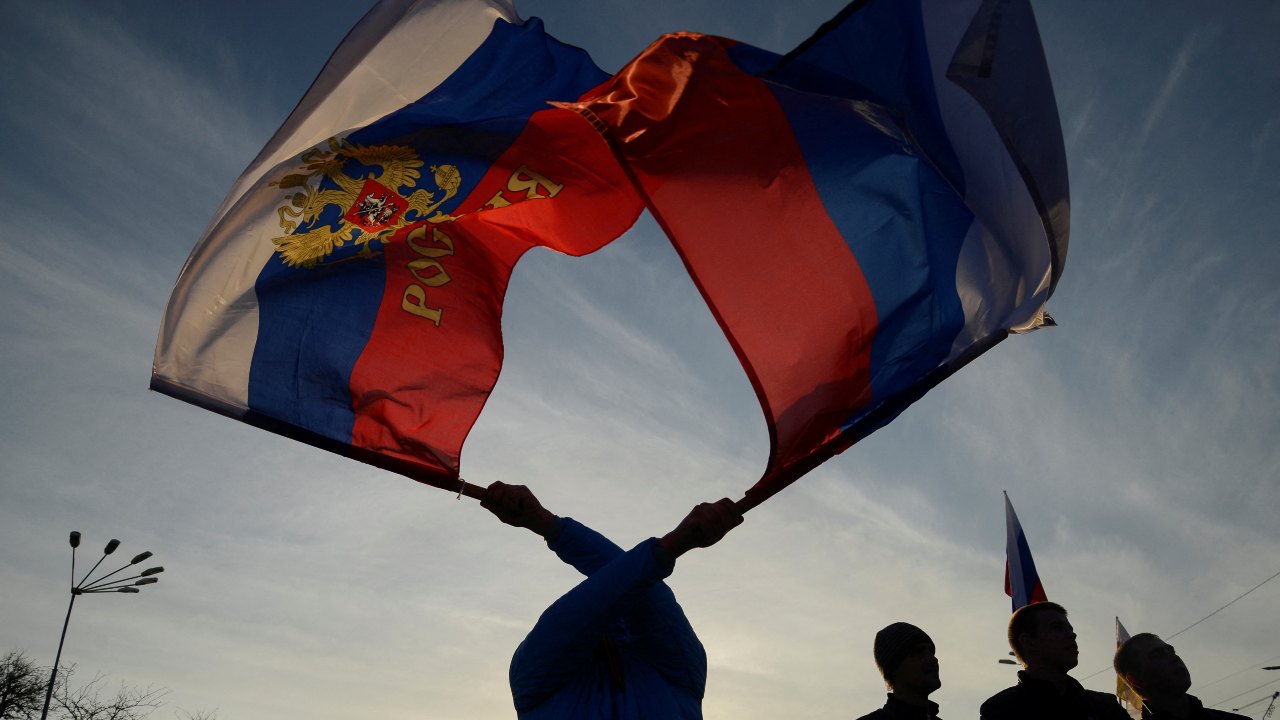For decades, Vladimir Putin has tried to preserve at least the image of Russia as a principled member of the international community. Since Russia’s invasion of Ukraine, however, the posture of the country’s leaders and propagandists has turned significantly darker.
By words and deeds, Russia now seems to be embracing the role of an international pariah – an attitude with substantial implications for the country and for Putin personally.
Russia still scores some propaganda points with its claim that it is an innocent forced into war by Western militarists and Ukrainian Nazis, even as Putin continues to formally refer to Western nations as “our partners.” Increasingly, however, Russia seems less concerned about whether anyone believes what it says. Its main focus appears to be on forcing the world to accept Russia on its own terms.
“Russia is not white and fluffy. Russia is what it is. And we are not ashamed of showing who we are,” Foreign Minister Sergey Lavrov told the BBC in June. Political scientist Sergei Mikheyev argued this month on a top Russian TV show that membership in the “world community” destroys Russia’s identity. “As for these constant conversations as to what we can offer the world, the world can go screw itself,” he said.
Alexei Drobinin, head of the Foreign Ministry’s planning unit, declared this month in a 4,000-word policy article, “Irrespective of the duration and outcome of the special military operation, we can already acknowledge that the three-decade epoch of mostly constructive, but not problem-free cooperation with the West is irrevocably over.”
Russia has upended international norms by not only attempting to seize other nations’ territory but by refusing to reveal even what its ultimate territorial claims are. Putin compared himself in June to Peter the Great, implying he intends to reconquer some still-unspecified part of the Soviet Union. Lavrov said last month that Moscow’s “geographic objectives” in Ukraine may continue to expand. Dmitri Medvedev, now deputy Security Council president, posted on August 1 on the VK social network that Kazakhstan is an “artificial country” and that Georgia never existed as a unified territory before it was part of the Russian Empire. (He later claimed his account had been hacked.)
Such claims directly undermine even those Westerners whom Russia would normally count as allies: people who would willingly yield Ukrainian territory to its invader on the grounds that Ukraine is the Kremlin’s only territorial target. Similarly, repeated Russian warnings that the Ukraine conflict could escalate to nuclear war — and its reckless use of Ukraine’s Zaporizhzhia nuclear plant as an artillery firebase — risk the enmity of environmental activists who usually focus on Western weaponry and ecological transgressions.
Beyond the rhetoric, Russia has embarked on burning institutional bridges with the world community. Since the war began, it has permanently pulled out of the International Space Station, the European spaceport in French Guiana, the Council of Europe (a day before it was to be suspended), the UN Human Rights Council (after the General Assembly suspended its membership), its diplomatic relationship with NATO and a range of sports and cultural events around the world. It has ostentatiously flirted with some of the world’s most criticized and sanctioned regimes: Putin visited Iran in July, and Lavrov made time this month to visit Myanmar. Russian media are promoting claims that North Korea is ready to send troops to help Russia.
In some ways, Russia’s actions are consistent with its attitudes before the Ukraine war. Putin has long claimed that Russia is a separate civilization from the West. Despite its professed support for international norms and institutions, the Kremlin has for years tried to ignore or circumvent any multilateral body that interfered with its goals. It has refused to implement rulings of the European Court of Human Rights on the treatment of Russian citizens, stonewalled international officials who sought data on its Sputnik COVID vaccine, and tried to short-circuit EU regulators and strongarm Germany into opening the (now abandoned) Nordstream 2 gas pipeline.
Since the Ukraine invasion, however, Russia has acted in a way that makes it appear ever more of a pariah. Russia has even made a mockery of its own credibility by vociferously claiming it had no intention of invading Ukraine until it did, by shelling grain facilities in Odesa the day after announcing it would allow Ukrainian grain exports, and by cutting gas transmission to Europe after decades of assurances it would always be a reliable supplier. Such actions bring into serious question the value of a Russian signature on any agreement to end the Ukraine war.
The image of an aggressive, lawless state may have tactical value for Russia. It can encourage radical groups within Western nations that gravitate toward belligerent actors. Russia can hope to frighten nations that oppose it into retreat and to intimidate others into at least remaining neutral about its actions.
Yet Russia is painting itself into a corner where its future depends almost entirely on whatever support it can extract from China and a wavering global South. Unless Russia is content to totally sever itself from the wealth, culture, and opportunities of the Western world, it will eventually have to rebuild the bridges it is burning.
The Kremlin’s current actions make such a rapprochement increasingly difficult, at least so long as Putin and his policies rule Russia.
Thomas Kent is a consultant on Russian affairs and the information war and teaches at Columbia University. His book, Striking Back: Overt and Covert Options to Combat Russian Disinformation,” was published by the Jamestown Foundation, where he is a senior fellow.
Europe’s Edge is CEPA’s online journal covering critical topics on the foreign policy docket across Europe and North America. All opinions are those of the author and do not necessarily represent the position or views of the institutions they represent or the Center for European Policy Analysis.





